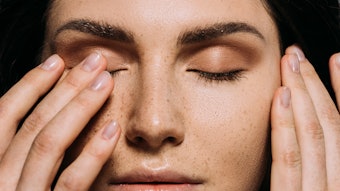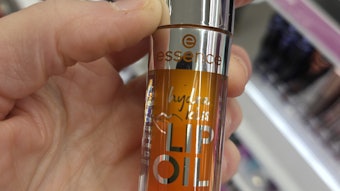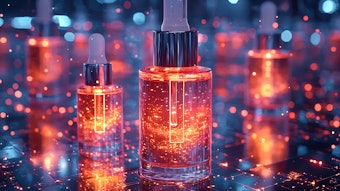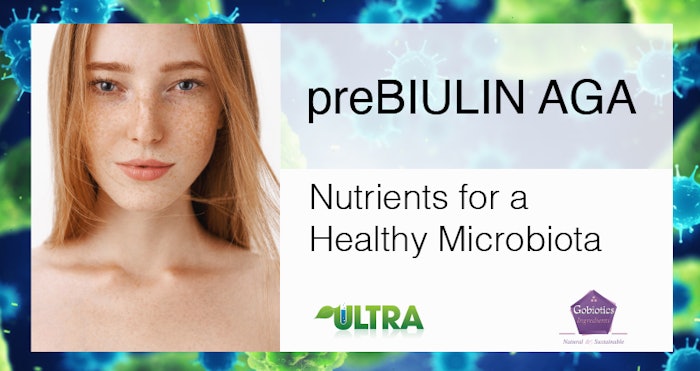
Preservatives. A must in any personal care product in order to keep consumers safe. But how are they impacting the microbiota? Research has suggested that everyday cosmetics and commonly used preservatives in personal care products do in fact disturb the skin microbiota.1, 2 This does not mean preservatives should not be used since they are essential in product and consumer safety. There is a prebiotic that can support the microbiota against the disturbance that happens to skin when exposed to preservatives while not altering the preservative efficacy in formulations. Additional benefits this prebiotic offers include superior skin hydration.
preBIULIN AGA (INCI: Inulin) is a prebiotic that is a combination of two inulin types differing in molecular chain length. The inulin is extracted from chicory and agave and can only be metabolized by organisms carrying the inulinase enzyme. Due to this, inulin acts as a prebiotic and only feeds select protective organisms that in turn provide food for others, thus supporting the microbiota.
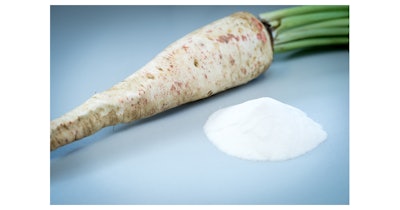 Protecting the Integrity of the Skin Microbiota from Preservatives
Protecting the Integrity of the Skin Microbiota from PreservativesTests were performed where creams containing a strong preservative system with and without preBIULIN AGA were applied onto subjects’ cheeks. The total count and diversity of the microbiota as a function of time shows how preservatives disrupt the microbiota. Without preBIULIN AGA, the microbiota had not recovered after 4 hours, whereas preBIULIN AGA accelerated its recovery. It was also found that the diversity of the microbiota was closer to the original situation, suggesting less colonization by foreign organisms with preBIULIN AGA than without it.
preBIULIN AGA supports the growth of the microbiota. This leads to a count that can exceed its initial value, which can be beneficial for aging skin where microbiota counts are typically low due to lower skin cell renewal and levels of sebum production, providing less food for microorganisms than younger skin.
Skin Hydration by preBIULIN AGA
preBIULIN AGA provides skin hydration that outperforms hyaluronic acid as demonstrated in short- and long-term tests. Creams formulated with 0.1% of high MW hyaluronic acid (1.6 MDa) and 1.5% preBIULIN AGA were tested up to 28 days, showing consistently higher hydration levels with preBIULIN AGA.
Please register on the right to download the full data for both the preservation and moisturization studies. Visit the Ultra website for all other technologies. www.ultrachem.com
- Wallen-Russell, C. The Role of Every-Day Cosmetics in Altering the Skin Microbiome: A Study Using Biodiversity. Cosmetics 2019, 6, 2
- Jeong, J., Hyun, K. Effects of Cosmetics and Their Preservatives on the Growth and Composition of Human Skin Microbiota. Journal of the Society of Cosmetic Scientists of Korea. Volume 41 Issue 2/Pages.127-134/2015/1226-2587(pISSN)/2288-9507(eISSN)
Disclaimer:
The above paid-for content was produced by and posted on behalf of the Sponsor. Content provided is generated solely by the Sponsor or its affiliates, and it is the Sponsor’s responsibility for the accuracy, completeness and validity of all information included. Cosmetics & Toiletries takes steps to ensure that you will not confuse sponsored content with content produced by Cosmetics & Toiletries and governed by its editorial policy.
